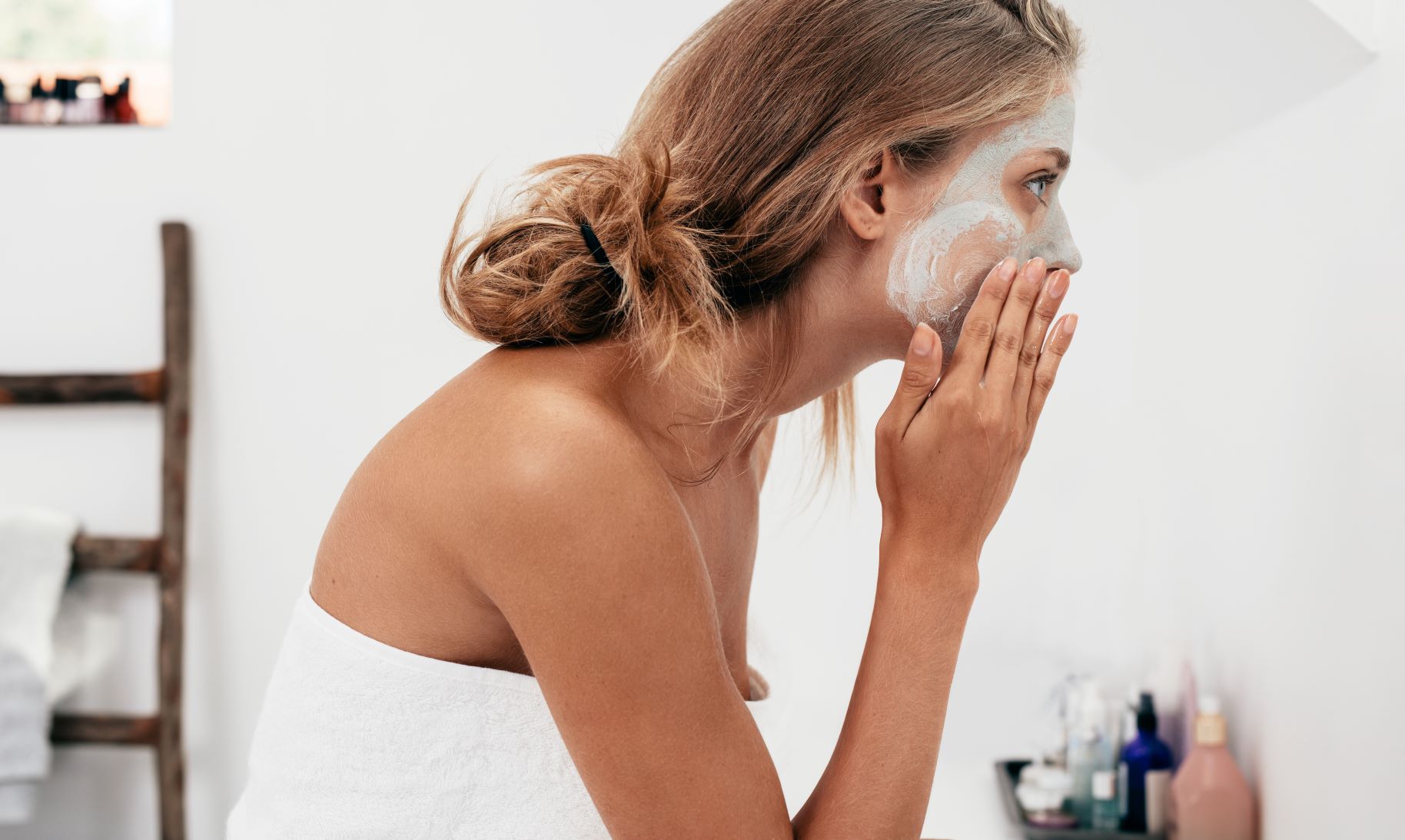Oily skin is a common skin type characterized by excess sebum production, leading to a shiny complexion and enlarged pores. Understanding the nature of oily skin is crucial for developing an effective skincare routine. Various factors contribute to oily skin, including genetics, hormones, and environmental factors.
Importance of Skincare for Oily Skin

Skincare is essential for oily skin to maintain its balance and prevent issues such as acne and clogged pores. Neglecting skincare can exacerbate oiliness and lead to more severe skin problems over time. A consistent skincare regimen tailored to oily skin can help manage oil production and promote healthier skin.
Identifying Your Skin Type
Before establishing a skincare routine, it's important to determine whether you have oily skin. Common signs include a greasy appearance, especially in the T-zone (forehead, nose, and chin), visible pores, and a tendency to develop acne and blackheads. Various methods, such as the blotting paper test or observing shine throughout the day, can help confirm oily skin.
Building an Effective Skincare Routine
A proper skincare routine for oily skin involves cleansing, toning, moisturizing, and exfoliating. Cleansing removes excess oil and impurities, while toning helps balance the skin's pH levels. Lightweight, oil-free moisturizers are essential to hydrate the skin without adding excess oil. Regular exfoliation helps remove dead skin cells and prevent clogged pores.
Choosing the Right Products

When selecting skincare products for oily skin, it's essential to opt for non-comedogenic formulas that won't clog pores. Look for ingredients like salicylic acid, benzoyl peroxide, and niacinamide, which help control oil production and treat acne. Avoid products containing heavy oils and fragrances, as they can exacerbate oiliness and irritation.
Daily Habits for Oily Skin
In addition to skincare products, certain daily habits can help manage oily skin. A balanced diet rich in fruits, vegetables, and whole grains can improve skin health, while staying hydrated helps regulate oil production. Sun protection is crucial for oily skin, as sun exposure can stimulate oil production and worsen acne. When applying makeup, choose oil-free, non-comedogenic products to avoid clogging pores.
Targeted Treatments for Oily Skin
Incorporating targeted treatments into your skincare routine can address specific concerns associated with oily skin. Clay masks help absorb excess oil and impurities, while serums containing ingredients like retinol and vitamin C can control oil production and brighten the skin. Spot treatments formulated with ingredients like tea tree oil or sulfur can help reduce inflammation and treat acne breakouts.
Managing Breakouts and Acne
Breakouts and acne are common issues for individuals with oily skin. To prevent breakouts, it's essential to keep the skin clean and avoid touching or picking at blemishes. Incorporating products with acne-fighting ingredients like benzoyl peroxide or salicylic acid can help reduce acne-causing bacteria and unclog pores. Spot treatments can be used to target individual pimples and speed up healing.
Natural Remedies for Oily Skin

Some people prefer natural remedies to manage oily skin. DIY face masks using ingredients like clay, honey, and yogurt can help absorb excess oil and tighten pores. Herbal remedies such as witch hazel or green tea may also have astringent properties that help control oil production and soothe the skin. However, it's essential to patch test natural remedies before applying them to the entire face to avoid allergic reactions or irritation.
Consulting a Dermatologist
If oily skin issues persist despite following a consistent skincare routine, it may be beneficial to consult a dermatologist. Dermatologists can provide personalized recommendations and prescribe medications or treatments tailored to your specific skin concerns. They can also offer professional treatments such as chemical peels or laser therapy to address oily skin and acne more effectively.
Conclusion
Effective skincare for oily skin involves understanding its unique characteristics and implementing a tailored routine to manage excess oil production and prevent breakouts. By following a consistent skincare regimen, choosing the right products, and adopting healthy habits, individuals with oily skin can achieve a clearer, more balanced complexion.
Frequently Asked Questions (FAQs)
Q. Can oily skin be genetic?
Ans: Yes, genetics can play a significant role in determining skin type, including oiliness.
Q. Can oily skin lead to premature aging?
Ans: Oily skin tends to be more resilient against signs of aging, but neglecting skincare can still lead to premature aging due to sun damage and other environmental factors.
Q. Should I skip moisturizer if I have oily skin?
Ans: No, moisturizing is essential for all skin types, including oily skin. Opt for lightweight, oil-free moisturizers to prevent clogged pores.
Q. How often should I exfoliate oily skin?
Ans: Exfoliation should be done 2-3 times per week for oily skin to remove dead skin cells and prevent clogged pores.
Q. Can stress worsen oily skin?
Ans: Yes, stress can trigger hormonal changes that may lead to increased oil production and worsen oily skin symptoms.
